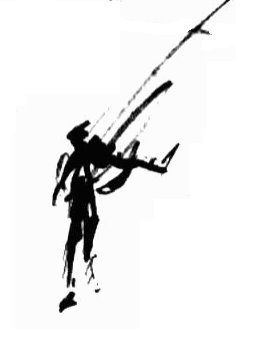If I have to explain all it will take a long time.
I was playing two short pieces at a concert an old friend of mine organized through the Vietnamese community. The imposed formality of the procedure, talks, MC, flowers, etc. always seems redundant. I like not to stay in a seperate room, I like to see the audience, I like to talk before the concert with people I know. Then get ready and play. One can say a word or two, one can say to the audience that I'm only me and feel that they also relax a bit.
The purely classical world with it's codes of conduct, concert etiquette, and the facelessness of it and the sometimes blind 19th century Romanicism and virtousity on stage seems unfitting. We pick such big bites of musical literature that are at the edge of one's technical ability, one can hardly listen to the music one is making for the worry of falling apart on stage.
I played the LeClair Sonata, 2 movements only. I had orriginally thought to include the last movement but I decided to cut it out because the worry was not worth it. Who cares, I'll play what I can. So the LeClair went ok.
I had the idea of complete trust of the right arm and to lead with the right arm, then I also wanted to practice presence in a new way. To be aware not of my notes and music and so on but that I'm playing in front of people not to hide the image. in the beginning I had my eyes closed and could feel the eyebrows moving, "oo alsmost out of tune... fine now, ... good, " But then I opened my eyes for a sec and saw the hall and my neck freed up a bit. There were glitches here and there, I held the note two short, I had to compensate, regina (my accompanist) was also doing this adjustment, and it takes a little bit of energy away, and tension is created.
The second piece was the pocket concerto. I had the luxury of having been beaten to awakeness before stepping on stage by Sam, I had said "Oh I'm falling asleep", he punched my back, I looked around a bit and saw more vividly the movement of people, I stepped on stage, with awareness and took a longer bow and looked into the audience, took enought time to adjust the stand and tune and took a few short seconds hearing the sound of silence (my silence, with the noises of some quiet whispers and more) and then played.
.
What I played felt more real and connected and meaningful in a way. I remember one moment of awareness when I stepped a bit further right from the music stand and saw the music and the background of the hall. Anyhow a more engaged expereince and a more fulfilling relationship with the instrument.
My parents were there and my aunt also. They took a video of my playing. I'd like to see how it looked from the camera's eye. True that I'm tired, but I can't recall any sound from my playing to mind. What's that all about?
Being an unaccompanied soloist is a great advantage for you can do adjustments on the moment to make up for you lack of preperation. Instead of a hard passage I can play a simpler thing (it's my music anyway) and just see what happens. Go on a tangent for a few seconds and come back. The music may not be (is not) as multi-faceted and well-constructed as Beethoven and Paganini, but it's real and possible. In a way special for the audience. It involves me and my habitual modesty.
This started years ago as a personal journal of my practice of music, movement, teaching and learning in general. After some years of inactivity, I decided to pick it up again. Here you will find thoughts, questions, curiosities, dilemmas, fears, hopes, and reflections. Sometimes in English, sometimes in Persian, on occasion resembling poetry, and also hopefully some music too. Note: This blog is a personal one, not associated with the organization I help run.

No comments:
Post a Comment